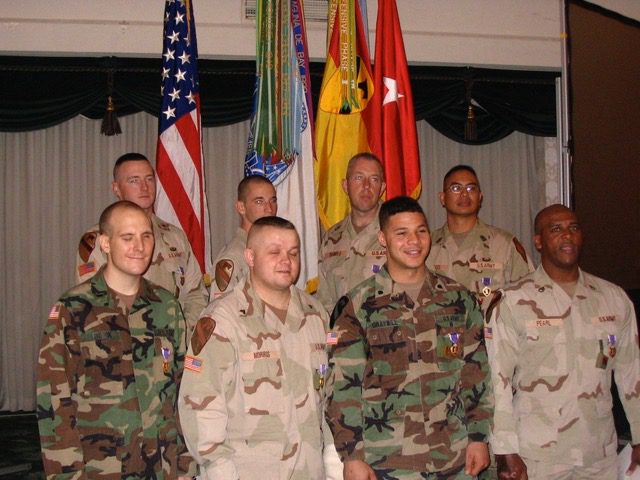Memorial Day: Honoring Service and Sharing Resources for Blind or Low Vision Veterans

On Memorial Day, we want to take time to honor those who have sacrificed for our country by sharing a collection of resources that are here to support those who have served us. This would not be possible without the help of two veterans who are blind, and who we are so grateful to work with, Tim Hornik and Don Walker. “As a combat-blinded veteran, I know firsthand how daunting the journey can be after losing vision. Yet, I also know that with the right support, it’s possible to not only regain independence, but to thrive. The resources I’ve discovered-from the Department of Veterans Affairs, to guide dog programs and community organizations-have truly transformed my life. I want to share these opportunities so other blind or low vision veterans can find the same hope, skills, and community,” said Hornik.
The Department of Veterans Affairs Blind Rehabilitation Services
The Department of Veterans Affairs Blind Rehabilitation Services helps to aide in a vision loss transition from the very beginning. They are able to provide personalized assessments and training in daily living, mobility, and technology, adaptive devices and home modifications, as well as emotional support and counseling. “After my time in the rehab center, I came home able to do just about everything except fly planes and drive cars. They sent me home well prepared to be an active citizen and husband,” said Walker. The use of these services begins with your VA’s Visual Impairment Services Team (VIST) Coordinators. “My VIST connected me with everything I needed to start rebuilding my independence,” said Tim. “One of the most powerful ways I regained confidence was through the VA’s and community adaptive sports programs. Health and fitness have long been a pillar of my daily routines, and I felt loss after not being able to run, cycle, and hike on my own.”
With the adaptive sports program, Tim was able to regain mobility skills in connection with organizations like United in Stride, Operation Second Chance, Team River Runner, and Team Sempre Fi. These programs allowed him to compete in athletic events like kayaking, cycling races, and the Boston Marathon, all while building community with other participants. The VA’s adaptive sports program offers a variety of programs to encourage and empower participants in their health and fitness journey with vision loss. Their programs are the largest gatherings of veterans who are blind or low vision in the country, including the National Veterans Summer Sports Clinic, National Disabled Veterans Winter Sports Clinic, TEE Tournament in Iowa City, National Veterans’ Golden Age Games, and more. “They offer a unique blend of skill-building, independence, and peer support that you won’t find anywhere else,” said Hornik.
Guide Dog Programs
“Partnering with a guide dog was a turning point in my journey. My guide dog has given me the freedom to travel safely, the confidence to explore new places, and the companionship to face each day with optimism,” said Tim. Organizations like America’s VetDogs/Guide Dog Foundation, Guide Dogs for the Blind, The Seeing Eye, and Guide Dogs of America work to provide veterans who are blind or low vision with a trained guide dog often at no cost to the veteran. “Guide dogs are so helpful, they can do so much, and they can give you a quality of life that you would have never had without your dog,” said Walker.
Library of Congress Talking Books Program
The National Library Service (NLS) for the Blind and Print Disabled has a database of thousands of books in audio and braille format. Through a national service of libraries, mail delivery, and mobile downloads, the NLS has made it as simple and easy as possible to access library materials. With the NLS, veterans receive priority service whether or not their disability is service related.
Local Assistance
“Navigating VA benefits and resources can be overwhelming, but you don’t have to do it alone. Local posts are welcoming communities where you can find answers, support, and friendship,” said Tim. The County and State Veteran Service Officers (VSOs), as well as organizations like Veterans of Foreign Wars (VFW), Disabled American Veterans (DAV), American Legion, and Blinded Veterans Association, have local offices to provide direct help where you may need it. “Don’t lose faith. There is help available. You’re never going to regain your sight, but you can still have a great life,” said Walker.
“This Memorial Day, I encourage every blind or low vision veteran to reach out, get connected, and discover what’s possible. Your next chapter can be your best yet,” said Hornik.
